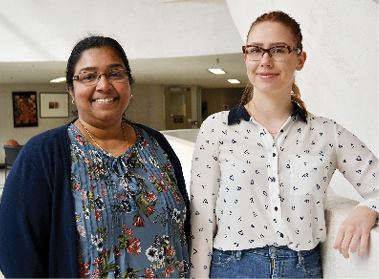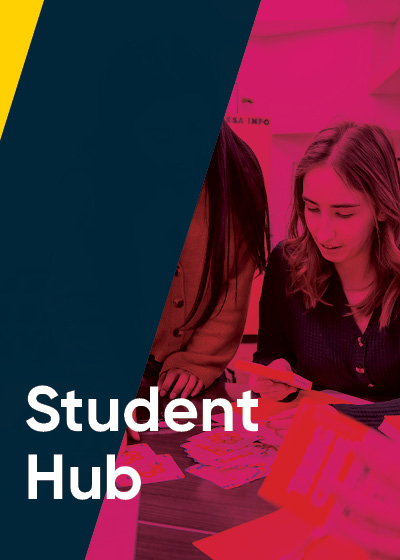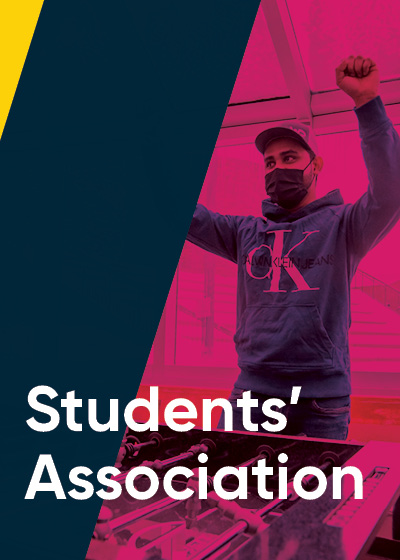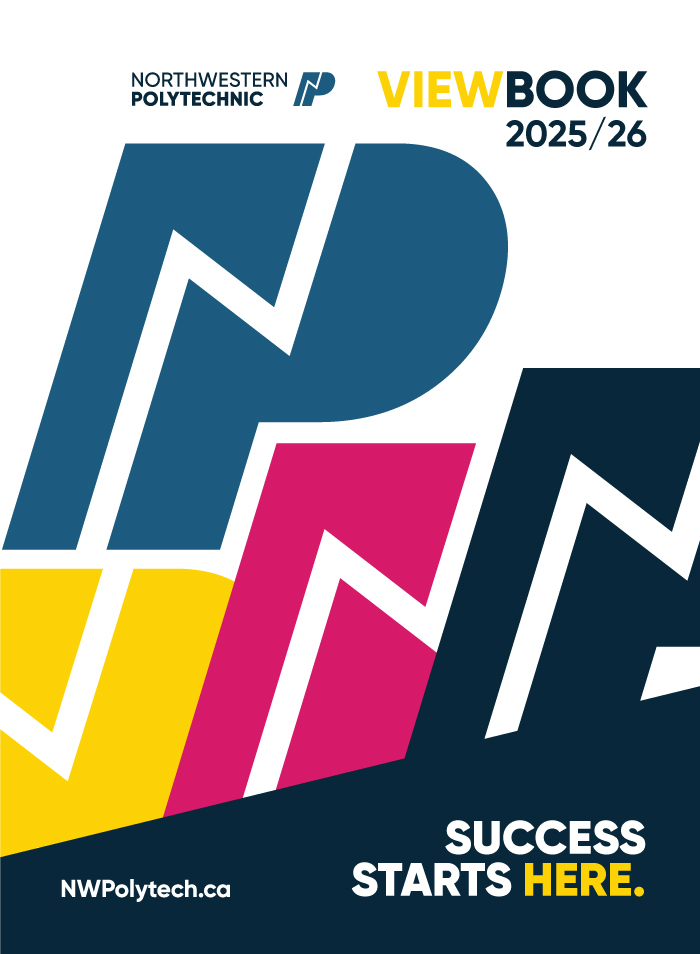News Archives: GPRC Student Investigates New Approaches to Bioremediation with Research Award
Tuesday, August 6th, 2019

Ashleigh Friesen Wolfe (right) poses with research mentor and GPRC biology instructor Beatrice Amar.
GPRC biology student Ashleigh Friesen Wolfe is one of two recipients of GPRC’s $5,000 Student Research Award this past May. This award is presented annually to students with outstanding research proposals, who are then paired with faculty or community mentors and provided with resources to turn their proposal into a reality. Although many submissions take the form of traditional research proposals, the award is also open to other less conventional forms of research (e.g., proposals for an art installation, business plans, musical composition, technology development in the trades, etc.).
For her winning project, Friesen Wolfe is investigating whether a species of fungus known for its ability to thrive in harsh environments would be effective in breaking down soil contaminants at oil sites in a process called bioremediation. Practitioners in the Peace Region commonly use bacterial strains, usually Pseudomonas sp., to break down contaminating hydrocarbons, but Friesen Wolfe says that process can be slow and inefficient: “We’re trying to see if this strain of fungus can do the same work as the bacteria, but more efficiently.”
The project’s methodology involves introducing a certain concentration of fungus to soil samples with different levels of contamination and then recording and analyzing the effects. “A lot of lab techniques we’ve been using are skills I can bring with me through my education and into my future,” said Friesen Wolfe, who will be studying immunology at the University of Alberta next academic year.
Friesen Wolfe’s involvement with GPRC’s Eco Club was a major driver of her interest in her current project. “As members we had to do a lot of research on what is being done to reduce our environmental footprint. It made me realize I’ve been a parasite my whole life!” she laughed. “I felt like I wanted to make a positive impact – I wanted to do something good for the environment.” Friesen Wolfe hopes her work can make a contribution to sustainable practices in the oil and gas industry.
Friesen Wolfe has been working on her project since May with the help of her faculty mentor, GPRC biology instructor Beatrice Amar. Amar says it’s exciting to see Friesen Wolfe grow as an academic. “One of the best things I can see happening with Ashleigh is the troubleshooting skills she is developing,” said Amar. “When you do research, you come across all kinds of roadblocks. You start to look for possible gaps and identify causes for the unpredicted changes, and your troubleshooting skill improves. Those thinking and solving skills developed in the research process are the hidden gems.”












